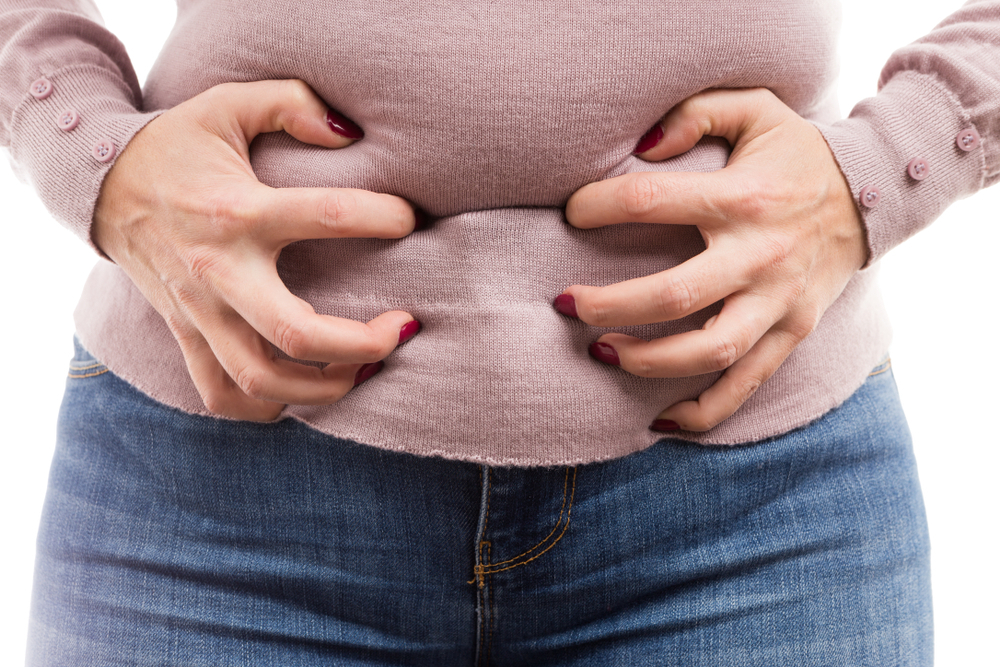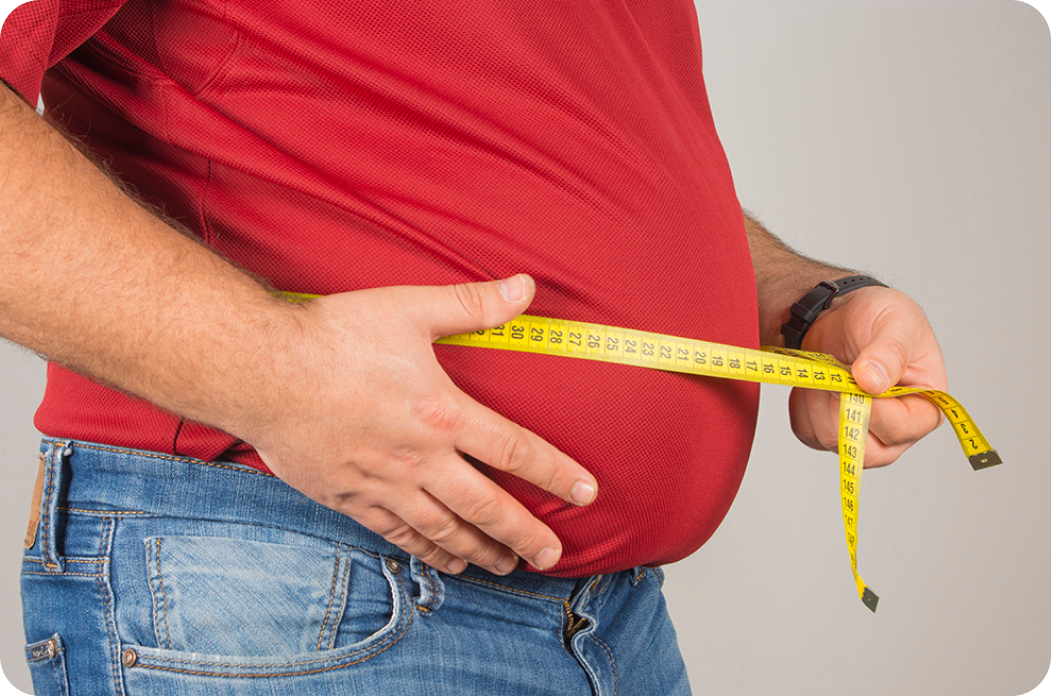Introduction
Bloating is a familiar and uncomfortable condition that can affect anyone, causing a sense of fullness and tightness in the abdomen. It occurs when excess gas, fluid, or food accumulates in the digestive system. Though usually not serious, bloating can interfere with our daily activities and make us feel sluggish and uncomfortable.
In this blog, we'll delve into the causes of bloating, explore effective remedies, and provide practical tips for finding relief.
Understanding Bloating
Imagine feeling like there's an inflated balloon in your belly - that's what bloating can feel like. It's a common symptom that many people report experiencing. While occasional bloating is a normal bodily response, chronic or severe bloating can indicate underlying issues.
Sometimes, bloating comes with distension, where you can visibly see your abdomen getting wider between your hips and chest.
Bloating and distension aren't just uncomfortable; they can cause pain too.
Alongside these sensations, you might also experience other gas-related issues like burping, swallowing air, or passing gas.
Dealing with these symptoms can be challenging, but understanding them better can help you find ways to improve your quality of life.
Causes of Bloating
1. Overeating:
One of the primary culprits of bloating is overeating. Consuming large portions of food in a single sitting can overload the digestive system, making it challenging for the body to break down and process everything efficiently. As a result, excess gas can build up, leading to bloating and discomfort.
2. Constipation:=
Stool moving too slowly through the intestines can cause bloating and discomfort. Constipation often occurs due to inadequate fibre intake, insufficient water consumption, and a sedentary lifestyle. Sluggish bowel movements can result in an accumulation of gas and waste in the digestive tract.
3. Excessive Salt intake:
The link between salt intake and bloating relates to how sodium affects the body's fluid balance. When we consume too much salt, our kidneys may struggle to remove the excess sodium from the bloodstream. As a result, the body retains water to dilute the sodium concentration in the blood, leading to water retention and bloating.
4. Fatty and Greasy Foods:
When you consume greasy or fatty foods, they take longer to digest than other foods. The presence of fat slows down the emptying of the stomach, and it also requires the release of certain digestive enzymes and bile from the gallbladder and pancreas to break down the fats.
As a result of this slower digestion process, the food can sit in the stomach for longer, leading to a feeling of fullness and bloating. Additionally, the slow movement of food through the digestive system can cause gas to build up, further contributing to bloating.
5. Swallowed Air (Aerophagia)
Aerophagia is the unintentional swallowing of air, often occurring while eating or drinking quickly, chewing gum, or consuming carbonated beverages. This extra air can accumulate in the stomach, causing bloating.
6. Excessive consumption of carbohydrates:
Certain types of carbohydrates can be harder to digest for some people, leading to bloating and discomfort. For example:
High-Fiber Carbohydrates: Foods rich in fibre, such as whole grains, beans, lentils, and some vegetables, can cause bloating in some individuals. Fibre is essential for a healthy digestive system. Still, excessive intake or sudden increase in fiber consumption can lead to gas and bloating, especially if the body is not used to it.
FODMAPs, which stands for Fermentable Oligosaccharides, Disaccharides, Monosaccharides, and Polyols, are a group of carbohydrates that may not be well absorbed in the small intestine.
Researchindicates they can ferment in the colon, producing gas and bloating in some people.
Foods high in FODMAPs include certain fruits (e.g., apples, pears), vegetables (e.g., onions, garlic), wheat, and dairy products.
Simple Sugars: Excessive consumption of sugary foods and beverages, such as candies, pastries, and sugary drinks, can also lead to bloating. Simple sugars can cause a rapid increase in blood sugar levels, leading to water retention and bloating.
7. Digestive Disorders:
Conditions like irritable bowel syndrome (IBS), lactose intolerance, or small intestinal bacterial overgrowth (SIBO) can cause chronic bloating.
8. Food intolerance:
Food intolerances occur when the body lacks specific enzymes needed to digest certain substances. Lactose intolerance, for example, is the inability to properly digest lactose, a sugar found in dairy products. When these substances go undigested, they can ferment in the gut, leading to gas production and bloating.
9. Carbonated Beverages:
Fizzy drinks contain carbon dioxide, which can get trapped in the digestive system, leading to bloating and gas. The bubbles in carbonated beverages can contribute to that uncomfortable feeling in the abdomen.
10. Hormonal Changes:
For some women, hormonal fluctuations during menstruation can cause water retention and bloating. This type of bloating is typically temporary and subsides once the hormone levels stabilise.
11. Smoking:
While smoking doesn't directly cause bloating as a typical side effect, it can indirectly contribute to bloating. Smoking may lead to swallowing excess air, irritate the stomach lining, cause indigestion, slow down digestion, and affect bowel movements, potentially resulting in bloating.
Lifestyle and dietary strategies to reduce bloating
-
- Stay active:Engaging in physical activity can promote regular bowel movements, aiding in the release of excess gas and stool. This is particularly crucial for individuals experiencing constipation. A brief stroll around the block can help alleviate gas pressure.
- Yoga:Several yoga poses can facilitate the positioning of abdominal muscles to encourage the release of excess gas from the gastrointestinal (GI) tract, reducing bloating. Some beneficial poses include:
Child's Pose:This pose involves kneeling and sitting on your heels, then bending forward to rest your chest on your thighs and your forehead on the floor. It gently compresses the abdomen, helping to release gas.
Happy Baby Pose:
Practice the Happy Baby Pose by lying on your back, drawing your knees toward your chest, and holding the outsides of your feet with your hands.
Wind-Relieving Pose (Pawanmuktasana):
Lie on your back, bring one knee toward your chest, and hug it with both hands. Repeat on the other side. This asana aids in releasing trapped gas and bloating.
Seated Forward Bend (Paschimottanasana):
Sit with your legs extended in front of you and bend forward from the hips, reaching for your toes or shins. It helps in massaging the abdominal organs, encouraging gas release.
Supine Twist:
Lie on your back, bring one knee toward your chest, and drop it across the opposite side of your body while keeping your shoulders flat on the ground. This twist can stimulate digestion and alleviate gas.
Bridge Pose (Setu Bandhasana):Lie on your back, bend your knees, and place your feet flat on the floor. Lift your hips and chest off the ground, creating a bridge shape with your body. It aids in improving digestion and relieving gas.
-
Stay hydrated
Water is vital for a happy, bloat-free belly. When you don't drink enough water or engage in dehydrating activities like playing sports, drinking alcohol, or eating salty foods, your body holds onto water. This water retention slows digestion, leading to constipation, and eventually, you feel bloated.
To avoid bloating, make sure to drink enough water daily. It helps keep digestion smooth and prevents water retention.By gently massaging the abdomen in a circular motion in the direction of the clockwise movement, you can promote the movement of gas through the digestive tract and potentially find relief from discomfort. This simple practice may help soothe digestive issues.
Remember to perform the abdominal rubbing with moderate pressure, being mindful of your body's response and adjusting the intensity as needed. If you experience any pain or persistent discomfort, it's advisable to discontinue the rubbing and consult with a healthcare professional.Chew food slowly
Chewing your food thoroughly is an underrated but vital aspect of digestion. Taking the time to chew slowly and mindfully can significantly reduce the amount of air swallowed during meals, decreasing the likelihood of bloating. Put down your phone, turn off the TV, and savour each bite—your digestive system will thank you.
Dietary modification
A. Limit Gas-Producing Foods - Certain foods are notorious for causing gas and bloating in some individuals. Beans, lentils, broccoli, cabbage and onions are common culprits. While these foods are nutritious, consider moderating your intake or finding suitable substitutes to prevent excessive bloating.
B. Be Mindful of FODMAPs - FODMAPs (fermentable oligo-, di-, mono-saccharides, and polyols) are specific types of carbohydrates that can be challenging to digest for some people. They can lead to bloating and other digestive discomforts. If you suspect FODMAPs may be the culprit, try following a low-FODMAP diet and reintroduce foods gradually to identify your triggers.
C. Increase your fibre intake gradually - Eating more fibre prevents constipation and bloating. But be careful not to overdo it, as too much fiber too fast can lead to more gas and bloating. Start slowly, and increase intake gradually over a few weeks to let your body adjust to the change in diet.
D. Limit Fatty and Greasy Foods High-fat and greasy foods can slow down digestion, leading to bloating. Minimise the consumption of fried foods, fatty meats, and processed snacks. Instead, choose healthier fats in nuts, seeds, avocados, and fatty fish like salmon.
e. Watch the CarbonationCarbonated beverages, such as sodas and sparkling waters, introduce extra gas into your digestive system, leading to bloating. Limit your intake of carbonated drinks.
Incorporate Probiotics
Probiotics are live beneficial bacteria that support a healthy gut flora balance and aid digestion. They can help improve gut health by promoting good bacteria growth and inhibiting harmful bacteria growth.
Reduce Sodium Intake
High sodium levels can lead to water retention and bloating. Cut down on processed and salty foods.
Avoid Swallowing Air
Be mindful of habits that cause you to swallow excess air, which can contribute to bloating. Avoid chewing gum, drinking through straws, or talking while eating. Instead, focus on consuming meals in a calm, relaxed environment.
Quit Smoking
Smoking is detrimental to overall health, including digestive health. Quitting smoking is a crucial step in promoting better digestive health and reducing the chances of bloating. Seek support from friends, family, or healthcare professionals to help you on your journey to becoming smoke-free.
Manage Stress
Stress and anxiety can wreak havoc on your digestive system, leading to bloating and discomfort. Incorporate stress-reducing techniques such as meditation, deep breathing exercises, or yoga into your daily routine to promote better digestion.When to seek medical advice
Seeking medical advice for bloating is important in specific circumstances, as it could be a sign of an underlying medical condition that requires attention. Here are some instances when it's advisable to consult a healthcare professional:
- Persistent or severe bloating that doesn't improve with lifestyle changes
Chronic bloating can be a symptom of various digestive disorders or health issues that need further investigation.
- Unexplained weight loss accompanying bloating
A healthcare professional should evaluate sudden and unintentional weight loss, especially when paired with digestive symptoms.
- Significant changes in bowel habits
Persistent diarrhoea or constipation could indicate an underlying gastrointestinal issue.
- Blood in the stool or dark, tarry stools-
It could be an indication of bleeding in the digestive tract. This symptom needs urgent medical attention.
- Severe abdominal pain along with bloating-
Severe and persistent abdominal pain can be a sign of various conditions, including gastrointestinal or abdominal emergencies, and should be assessed by a healthcare professional.
- Frequent vomiting or nausea with bloating.
- Family history of gastrointestinal disorders or colon cancer.
- New or unexplained bloating with other unusual symptoms.
- Age over 50 with risk factors for gastrointestinal conditions.
- Signs of infection, such as fever or chills, alongside bloating.
Conclusion
With these simple tips and lifestyle changes, reducing bloating and achieving a more comfortable tummy is within your reach. Embrace mindful eating, manage fibre intake, stay hydrated, and consider incorporating probiotics into your diet. Be mindful of gas-producing foods and, if needed, explore a low-FODMAP diet to identify your triggers.
Regular exercise and stress management are additional ways to support digestion and reduce bloating. Remember that each person's body is unique, so finding the best strategies for you is essential.
By making conscious choices and paying attention to your body's signals, you can take control of bloating and enjoy a healthier and happier digestive system. Embrace these practical tips, and say goodbye to bloating for good!




